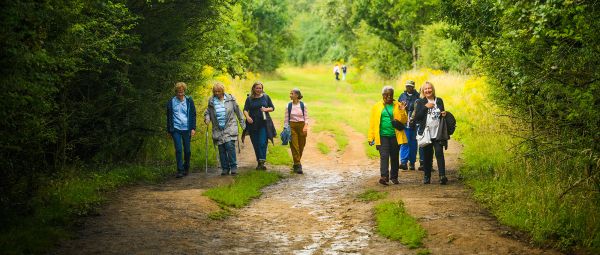How to abolish the 2026 deadline for saving lost paths

A year ago, the UK government committed to abolishing the 2026 deadline to register historic paths in England. Since then, we’ve been told multiple times they are looking for an “appropriate legislative vehicle” to turn this commitment into law.
Well, good news, we’ve found one – the government’s Levelling Up and Regeneration Bill currently making its way through parliament and which we’ve been working hard to influence.
First, some background on the 2026 deadline
In short, there are rights of way across England and Wales that don’t appear on official maps. They therefore have no legal protection. Some may be paths that have been used for decades, even centuries. Others may be unknown to the public. To save these paths for future generations, they need to be identified and an application made to have them added to official maps.
In 2020, we launched our Don’t Lose Your Way campaign to find these lost paths across England and Wales. Our supporters did an amazing job and found 49,000 miles of lost paths.
Learn more and get involved in Don't Lose Your Way.
For a long time, we had a deadline looming over us to do the work required and apply to save these paths: 1 January 2026, as set out in the Countryside and Rights of Way Act (CRoW) 2000. Then, in February 2022, the campaign had a big win. The UK government announced it would abolish the 2026 deadline in England, following in the steps of the Welsh government which had already made a similar commitment.
But as we get closer to that deadline, the cut-off date still hasn’t been repealed.
The Levelling Up and Regeneration Bill is a golden opportunity
The Levelling Up and Regeneration Bill, currently being debated by the House of Lords, is the only opportunity on the horizon to remove the 2026 deadline from the CRoW Act.
Improving access to the outdoors is key to delivering on important levelling up ambitions set out by government. A better protected path network would help achieve improvements in health and wellbeing, as well as foster greater pride of place in local communities. Both of these goals have been identified as critical areas the government wants to focus on.
It will also help the government deliver on other promises, such as the recent pledge to bring access to a green or blue space within a 15-minute walk of everyone’s homes.
What next?
We’ve joined the dots for the government and highlighted the opportunity to ministers and officials. We’re also proposing an amendment to the Bill, which has the backing of peers from across the House of Lords, that would finally get rid of the 2026 deadline once and for all. We’re looking forward to the forthcoming debate on the amendment and how it is received by the government.
All that needs to be done is for ministers to accept it – repeal of the deadline is after all something that they have said they want to do.

Expand the freedom to roam
Help us to expand the freedom to roam. It is one of the biggest things we can do to increase access to the outdoors for everyone.

Invest in Scotland’s world-class access rights to boost our economy and health
Ramblers Scotland’s director Brendan Paddy argues that a relatively modest government investment goes a long way if spent on walking.

New ‘Getting Started Toolkit’ in development by the Ramblers
The Ramblers and Ramble Worldwide Outdoor Trust are teaming up to help more people experience the benefits of walking via a new ‘Getting Started Toolkit’